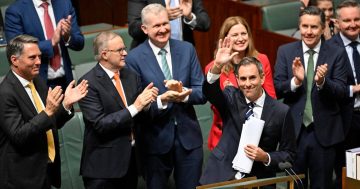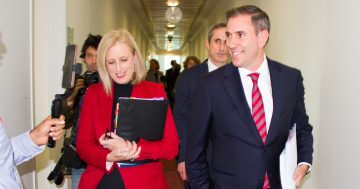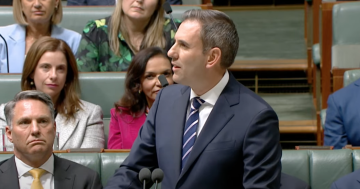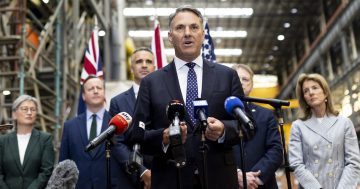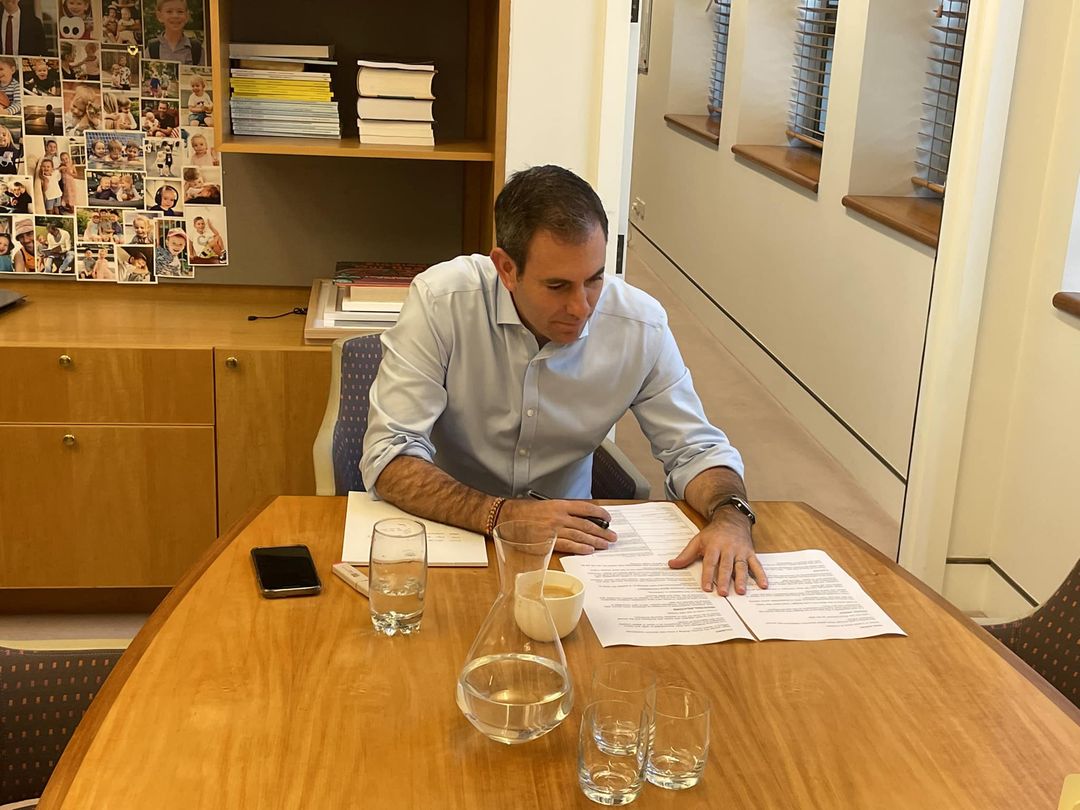
Jim Chalmers preparing for last year’s budget. Photo: Supplied.
The 2023 Federal Budget is being delivered tonight and it is Treasurer Jim Chalmers’ second go, although his first was an out-of-schedule one in October from a newly elected Labor government.
True to tradition, much of the good news from tonight’s budget has already been ‘officially leaked’ along with a little not-so-good news.
All the while, also true to tradition, speculation is rife about what is left to be dropped on an unsuspecting public.
The secrecy about budgets is somewhat archaic – particularly the budget lockups for the media and stakeholders.
It’s meant to be kept under wraps until the Treasurer is on his feet at the dispatch box so as not to prematurely affect the markets – or give someone an unfair trading advantage.
Those entering the lockups are cut off from the world for hours. They must surrender and/or disable any form of electronic message-carrying devices and are compelled to sign (not quite in their own blood yet) promises of secrecy with the threat of severe repercussions if broken.
That’s all very well, but the concept doesn’t quite gel with the fact that the government ‘leaks’ whatever it wants via official announcements or not-so-secret drops to its preferred news outlets.
For some time now, the secrecy around budgets has had far less to do with markets and much more to do with governments wanting to manage their budget messaging on their own terms.
All political parties do it once they get their grips on the treasury benches of parliament, so no one expects such conventions to change anytime soon.
It usually makes for a duller budget night, though, with so much already known – which is also probably part of the government’s media management plan.
Having said all that, here is a list of some of what we know already about what is (or might be) in the budget documents … just so you don’t have to watch it all.
Have a good budget night.
- $14.6 billion for cost-of-living measures.
- $535.3 million over four years for national institution programs and upgrades – Questacon, National Library, National Gallery of Australia, High Court and more.
- The new National Anti-Corruption Commission and privacy commissioner to receive funding.
- Moves to bring more government-funded services and projects in-house, in a move away from external contracts and the private sector.
- Review of the $120 billion infrastructure pipeline projects.
- Defence spending through reprioritisation, including:
– $4.1 billion to accelerate several ADF long-range missile programs
– $3.8 billion allocated to the strengthening of several key air and naval bases and army barracks across Australia’s north
– $3.4 billion commitment over the next decade to establish the Advanced Strategic Capabilities Accelerator program
– $400 million into a retention bonus scheme for ADF personnel. - Support for small businesses, $314 million to go green.
- Cybersecurity strategy initiatives for small business.
- $163.4 million for the Australian Institute of Marine Science.
- $3 billion in energy bill relief.
- Raising JobSeeker payments for those 55 and older.
- Raising the age for cut-off for the Single Parenting Payment from eight to 14 years, costing $1.9 billion over four years.
- Aged care budget to rise from $24.8 billion to $35.8 billion by 2025/26.
- Aged care workers to get a 15 per cent pay rise over four years, costing $11.3 billion.
- From 1 September, general practitioner patients can save up to $180 a year with some medicines being able to be prescribed for 60 days.
- $2.2 billion for Medicare reforms, including incentives for doctors to see patients after hours.
- $737 million to target the harms caused by tobacco and vaping products.
- $3.3 billion increase in tobacco taxes over three years.
- $3.7 billion extra for a five-year National Skills Agreement.
- $2 billion for more social and affordable housing.
- An extra $262.3 million for national parks.
- Offshore LNG industry to pay $2.4 billion over four years in changes to petroleum resources rent tax.
- Further crackdown measures on multinational tax avoidance.
- Government debt is just under $900 billion.
- An overall $17.8 billion in ‘found’ budget savings and reprioritised spending.












